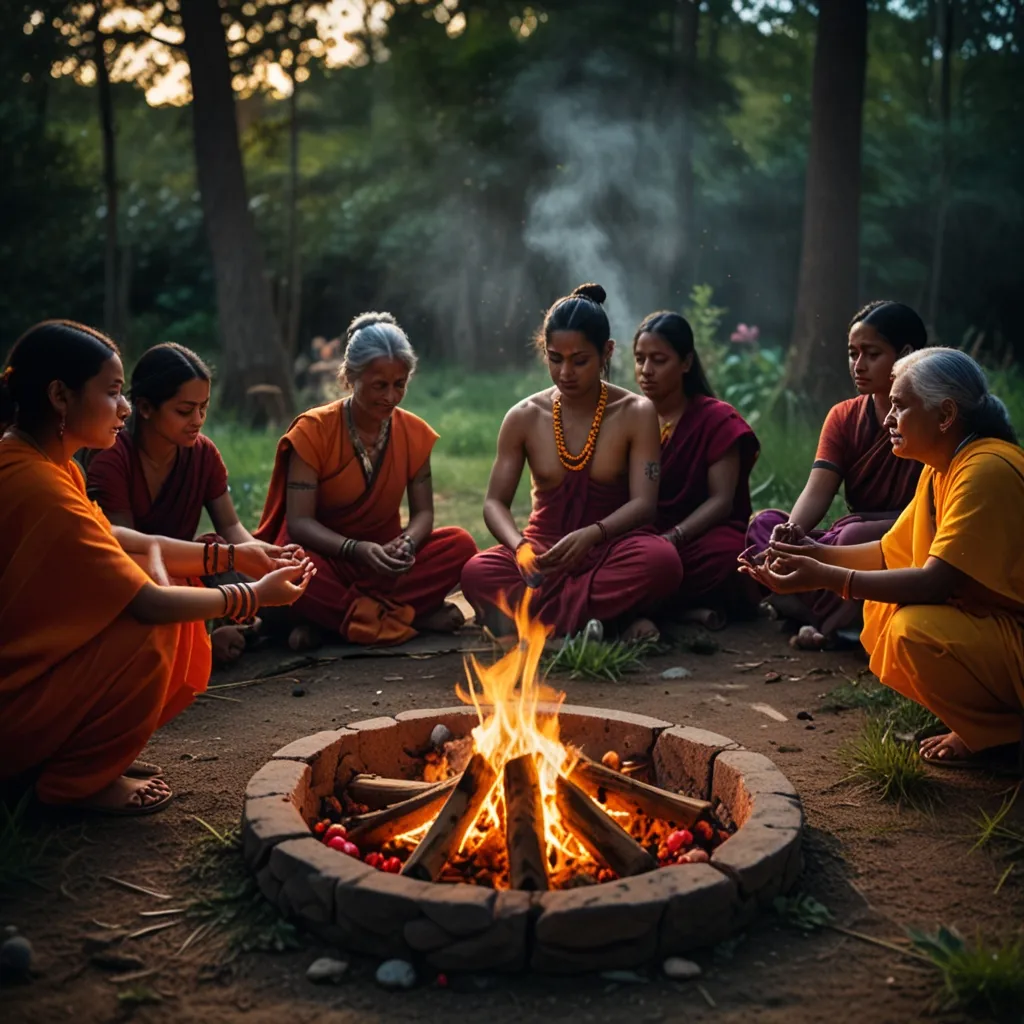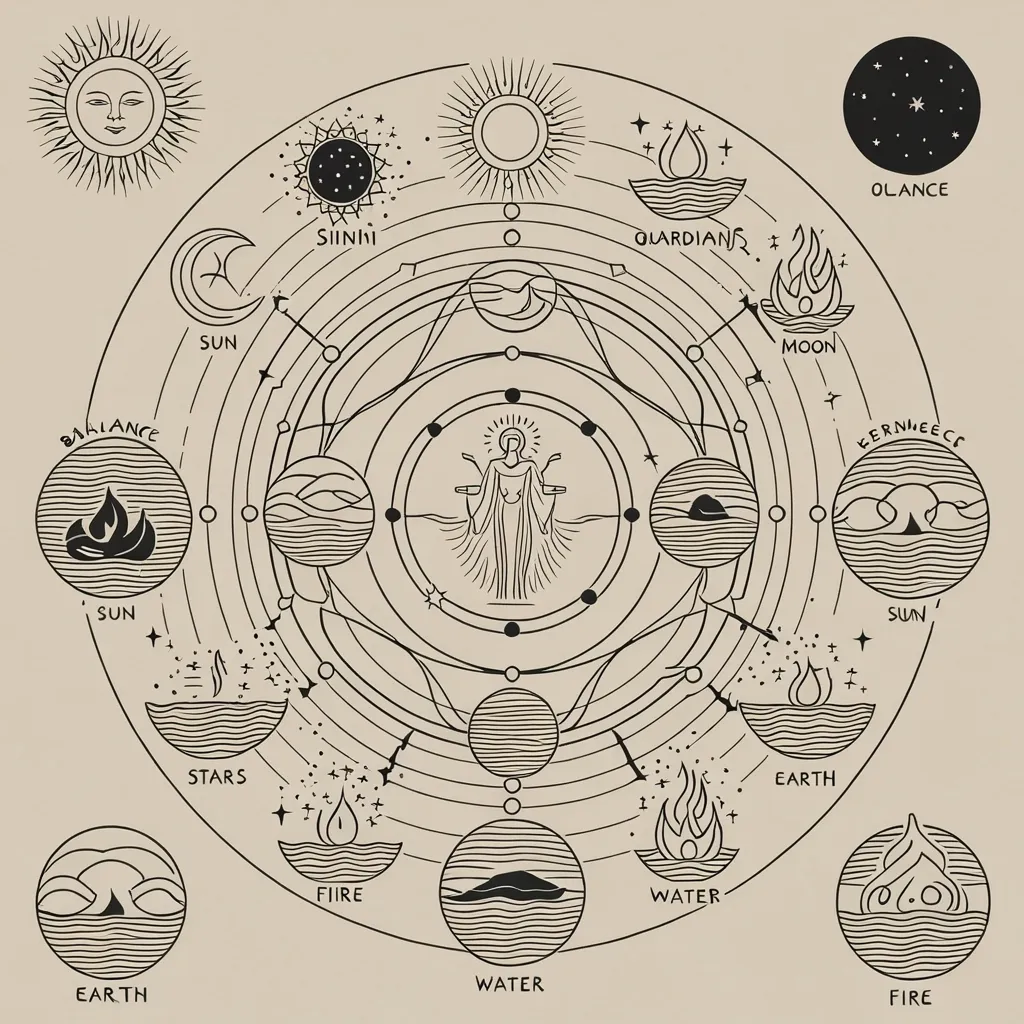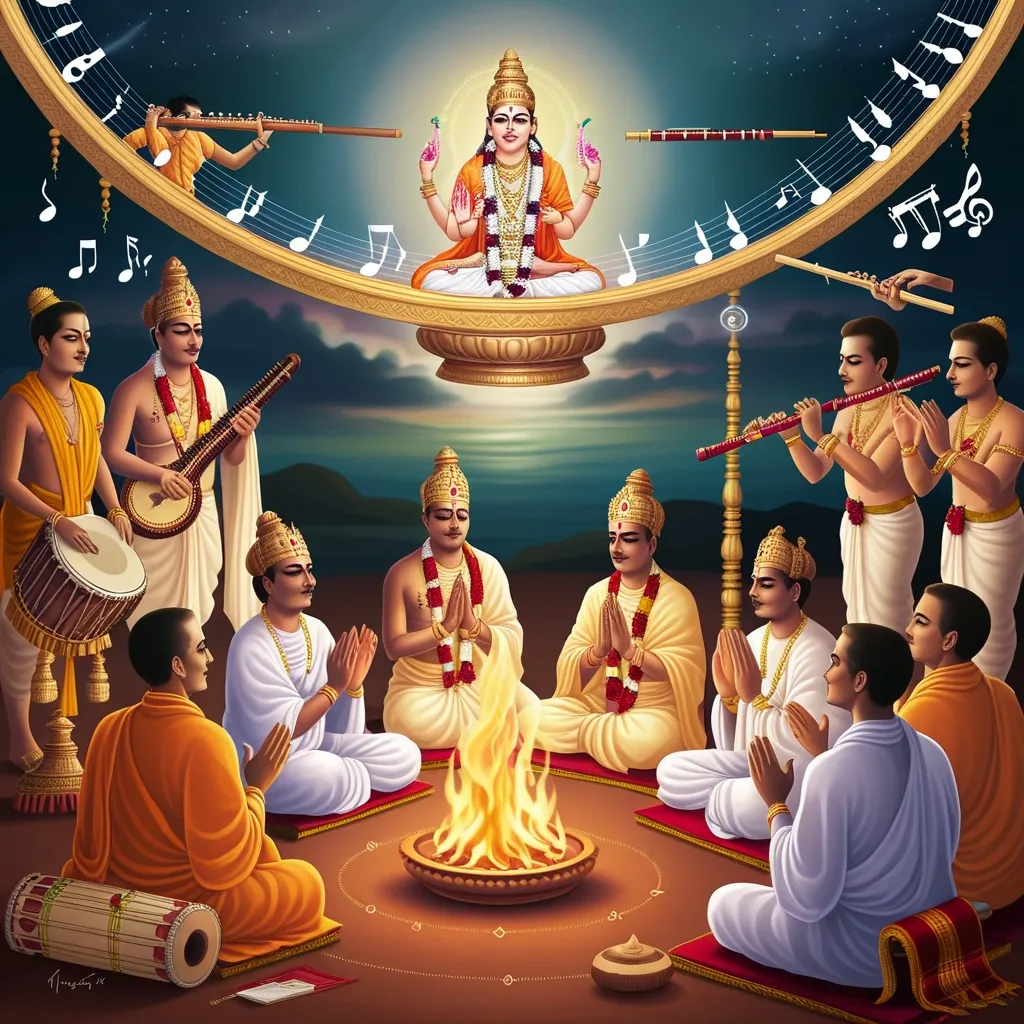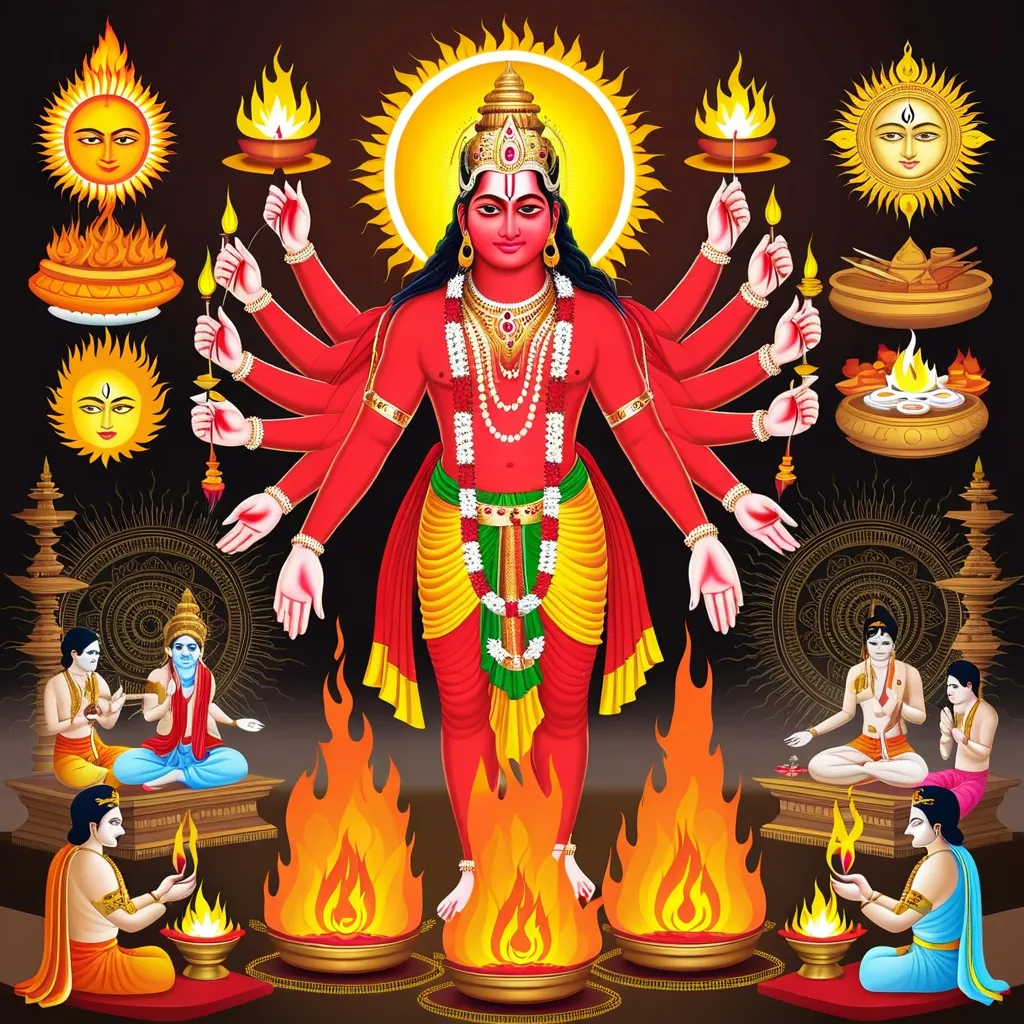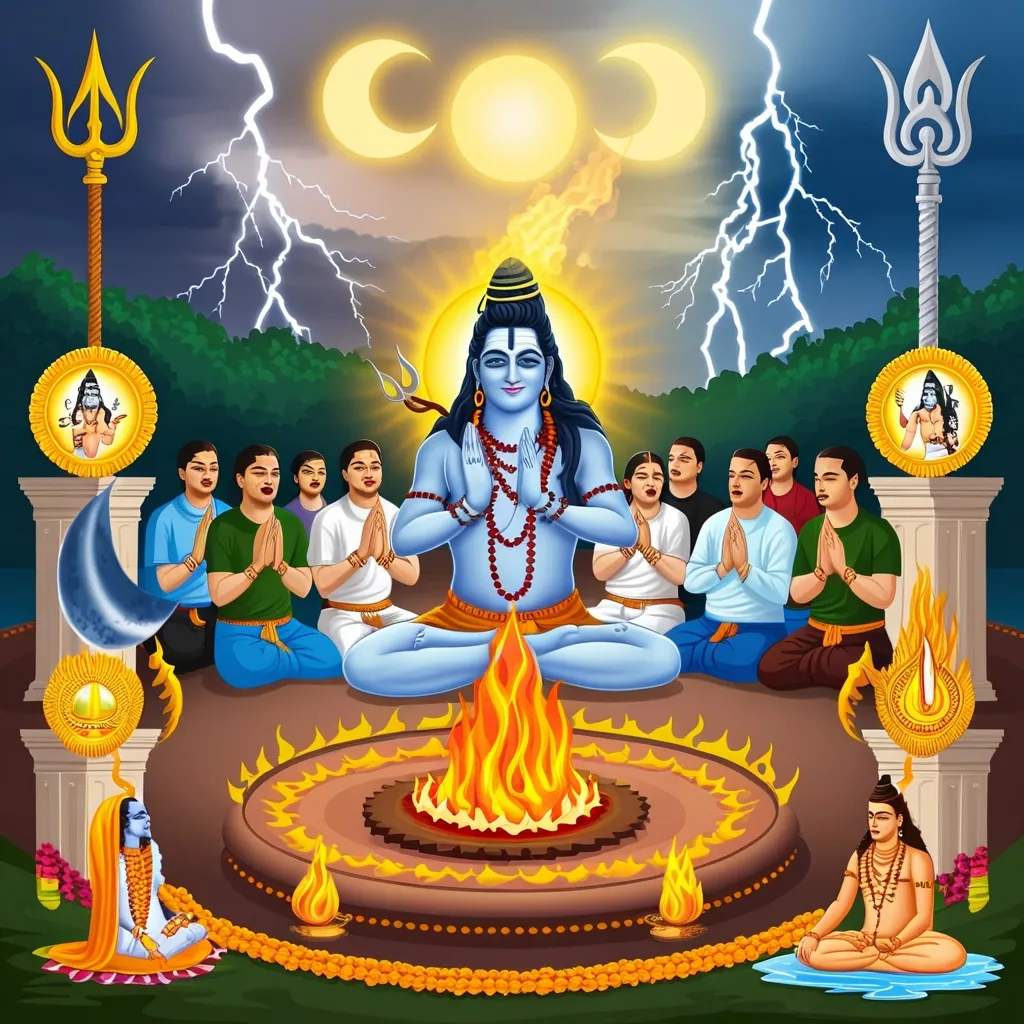In the vibrant cultural mosaic of Hindu traditions, Yagna emerges as a cornerstone, bringing the community together and highlighting our duty towards preserving nature. It’s an old ritual, usually done with a sacred fire, and it beautifully blends the practical with the spiritual, teaching us about cooperation, respect for the environment, and social responsibility.
At its heart, Yagna is all about making offerings to the gods through fire, known as Agni. This fire isn’t just a physical flame; it’s a deity in itself, believed to carry our prayers and offerings to the celestial beings. The fire acts as a divine messenger, and in return, it’s believed that the gods grant us blessings, ensuring prosperity and the continuation of life on Earth.
Think of Yagna as a symbolic bridge that connects us with nature. The Vedas, ancient Hindu scriptures, view the universe as a systematic whole guided by the Supreme Brahman. Yagna plays a key role in maintaining the balance of this system. It’s a ritual that not only worships the divine but also underscores our moral duty to protect and preserve nature. It’s like a constant reminder that the air we breathe and the water we drink come with the responsibility to take care of our environment.
The Vedas paint a vivid picture of this interconnectedness using the metaphor of a tree with roots in the heavens and branches on Earth. Humans draw sustenance from the branches, and it’s the Yagna that keeps these roots nourished. This metaphor beautifully captures the essence of our relationship with nature and our obligation to nurture it.
Yagna is also known for its strong communal vibe. It’s usually performed as a community event, with people coming together around the Yajna Kunda, or fire altar, chanting mantras and making offerings. This act of coming together fosters unity and a shared sense of purpose. In Hindu tradition, individual actions are often viewed in the context of contributing to the collective good, and Yagna is a perfect example of this communal spirit.
Weddings in Hindu culture are another significant event where Yagna plays a central role. During a Hindu marriage, the sacred fire is considered a witness to the vows exchanged by the couple. The bride and groom walk around the fire, making promises to each other, in a ritual known as Saptapadi. This ritual isn’t just about the couple’s commitment to each other but also reflects their duty towards their community.
Yagna has shown a remarkable ability to evolve over time. During the Upanishadic era, its meaning expanded beyond the physical ritual to encompass personal attitudes and actions imbued with devotion and dedication. This shift in understanding signaled that Yagna was as much about intention and lifestyle as it was about ritual practices.
In contemporary times, the principles of Yagna are mirrored in various forms of community service and social responsibility. Whether it’s through volunteering, environmental conservation, or helping those in need, these actions echo the essence of Yagna—giving back to the community and caring for our world. The timeless values embodied in Yagna continue to inspire modern-day initiatives aimed at building stronger, more caring communities.
Yagna is also deeply tied to the concept of dharma, which means righteous living. Participating in Yagna is seen as a way to fulfill one’s dharma, encompassing duties towards society and the environment. This connection between spiritual growth and social responsibility is a hallmark of Hindu philosophy, which tends to see the material and spiritual worlds as intertwined.
In the grand scheme of things, Yagna isn’t just a ritual—it’s a way of life. It teaches us the importance of community, the need to act responsibly, and the duty to preserve nature. In today’s fast-paced world, the principles of Yagna serve as a gentle reminder of our interconnectedness and our role in contributing positively to the world around us.
As we hustle through the complexities of modern life, the timeless teachings of Yagna offer valuable insights. They remind us of the importance of living in harmony with nature and nurturing a sense of community and mutual respect. So, while Yagna might have its roots in ancient rituals, its message is profoundly relevant today, guiding us towards a more balanced and harmonious way of living.
